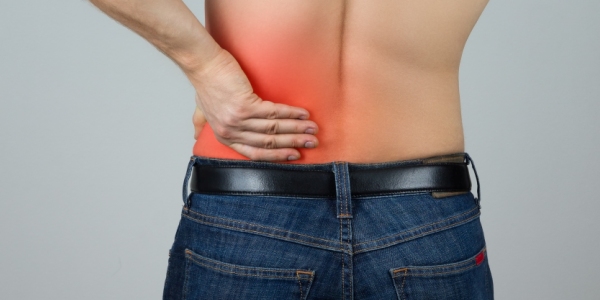Low Back Pain

Low back pain means pain in the lower lumbar, lumbosacral, or sacroiliac regions possibly accompanied by pain radiating down one or both buttocks and legs. Low back pain is one of the most common complaints. It is present in at least 50% of all persons 60 years of age or older. It accounts for millions of hours lost from work and more millions of dollars spent on treatment and medication. Low back pain may be either acute or chronic. It can be simply annoying or irritating or it can produce unbearable physical and emotional suffering. In Western medicine, acute low back pain is treated with rest, local heat, massage, oral analgesics, and muscle relaxants. Chronic low back pain is treated by weight loss, exercise, intramuscularly injected analgesics, and surgery. However, long-term narcotic use has its own problems, and surgery is not always effective.
On the other hand, Traditional Chinese Medicine(TCM) have been treating low back pain with acupuncture and Chinese herbal medicine for more than 3,000 years, and, in the last 50 years, a large body of research has been developed showing that Chinese medicine can be an effective alternative to Western drugs and surgery.
Migraines

Migraines are a specific type of headache that lasts 4-72 hours, is throbbing in nature and moderate to severe in intensity, is one-sided, and is worse with exertion. Migraines may also be associated with nausea, vomiting, or sensitivity to light, sound, or smell. In order to be diagnosed as suffering from migraines, one only needs to experience 3-4 of these symptoms. Currently, it is estimated that 24 million Americans have migraines. They occur more in women than men and mostly between 10-40 years of age. More than 50% of migaineurs have a family history of this disorder. According to Western medicine, the cause of migraines is unknown. The possible triggers may include cycling estrogen, insomnia, changes in barometric pressure, and hunger.
The combination of therapies may consist of acupunture, chinese herbal medicine, or both. Acupuncture may be used either preventively or remedially during an acute attack. Often, acupuncture can abort or decrease migraine pain within minutes after inserting the needles. Chineses herbal medicine may be administered in the form of desiccated, powdered extracts or bulk herbs brewed and drunk as a “tea” several times per day.
Insomnia

From time to time, most people have nights when they can’t sleep, tossing and turning, wondering how they are going to get through the next day. The Western medical treatment of insomnia mostly focuses on the use of various tranquilizing drugs, which can have unwanted side-effects. Although they produce sleep, they can leave the users drowsy, lethargic, and confused the next day. They can also be addictive and there is a danger of overdose. If one tries to withdraw from their habitual use, insomnia tends to return with a vengeance.
Chinese medicine seeks to restore balance to the body. Therefore, the practitioner begins by doing chinese medical diagnosis to determine the patient’s pattern of disharmony. Unlike sedatives and tranquilizers, chinese medical treatment promotes sound sleep without drowsiness, addiction, or withdrawal.
